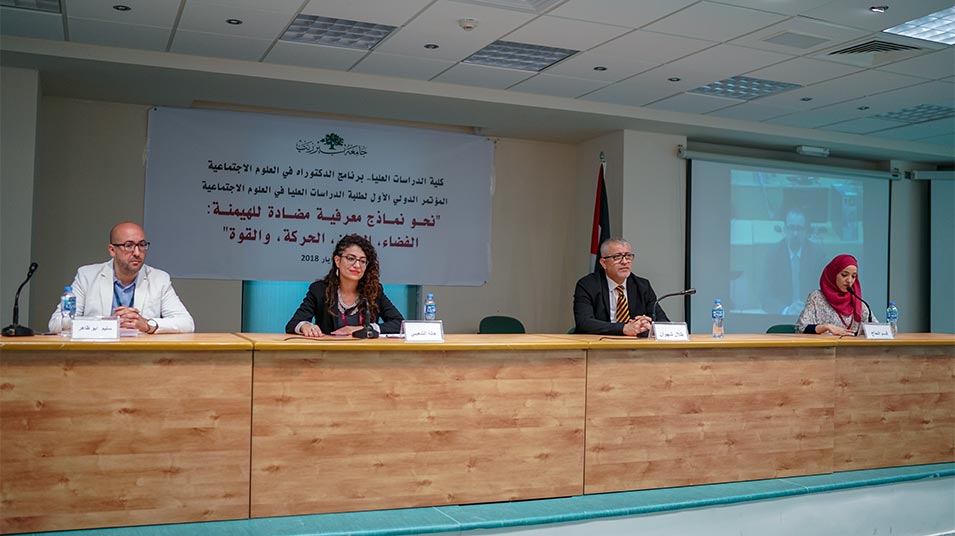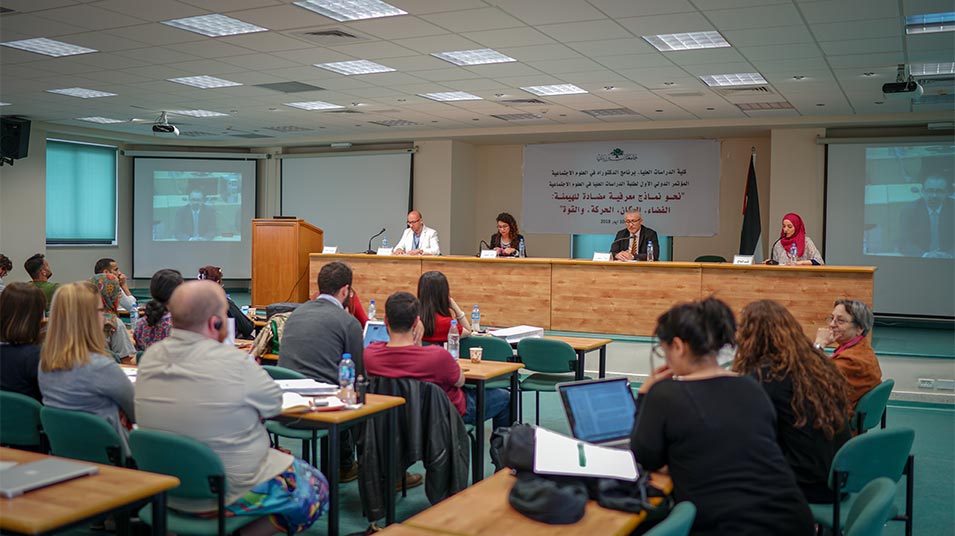International conference at Birzeit University contextualizes knowledge production in the Global South
International and local social science professors and students explored knowledge production within the context of hegemony in the first graduate student conference in the social sciences, entitled “Towards Anti-Hegemonic Knowledge Paradigms: Space, Place, Mobility, and Power,” and held on Birzeit University’s campus.
The three-day conference, which began on Tuesday, May 8, 2018, featured 25 graduate students from the Global South, post-doctoral scholars, and early-career academics, who exchanged ideas and presented their views on anti-hegemonic knowledge production in four main areas: space, place, mobility, and power.
Halla Shoaibi, a law professor at the university and coordinator of the conference, said in her opening remarks that the conference presents pressing issues that pervade all aspects of knowledge production.
Qassam Al-Haj, a student in the Ph.D. program and a member of the organizing committee, noted that the aim was to “produce Arab knowledge that is liberated from the colonial context and is relevant to Arab realities.”
“The conference is an extension of the Ph.D. Program in Social Sciences,” added Al-Haj, “which charts the structures and organization of power and knowledge, and attempts to find balance between local specificities and global universalities.”
In his welcoming speech, Dean of the Faculty of Graduate Studies Dr. Talal Shahwan highlighted the need for renewed efforts in the social sciences, especially in light of the recent technological and scientific advances.
“The social sciences are least found where they are most needed. The Arab world, for example, does not give equal attention to the social sciences; as such, we must concentrate our efforts on raising awareness and knowledge of the most pressing issues and hold similar conferences and workshops that shed light on issues relevant to our times and circumstances,” remarked Shahwan.
Shahwan also indicated the need for shared epistemic spaces that are essential for “building academic relationships and bolstering knowledge production.”
The first day of the conference featured Dr. Joseph Massad, a professor of modern Arab politics and intellectual history at Columbia University, as the keynote speaker. The speech and discussion, moderated by Ph.D. student Salim Abuthaher and a member of the Conference Organizing Committee – were broadcast via video conference.








